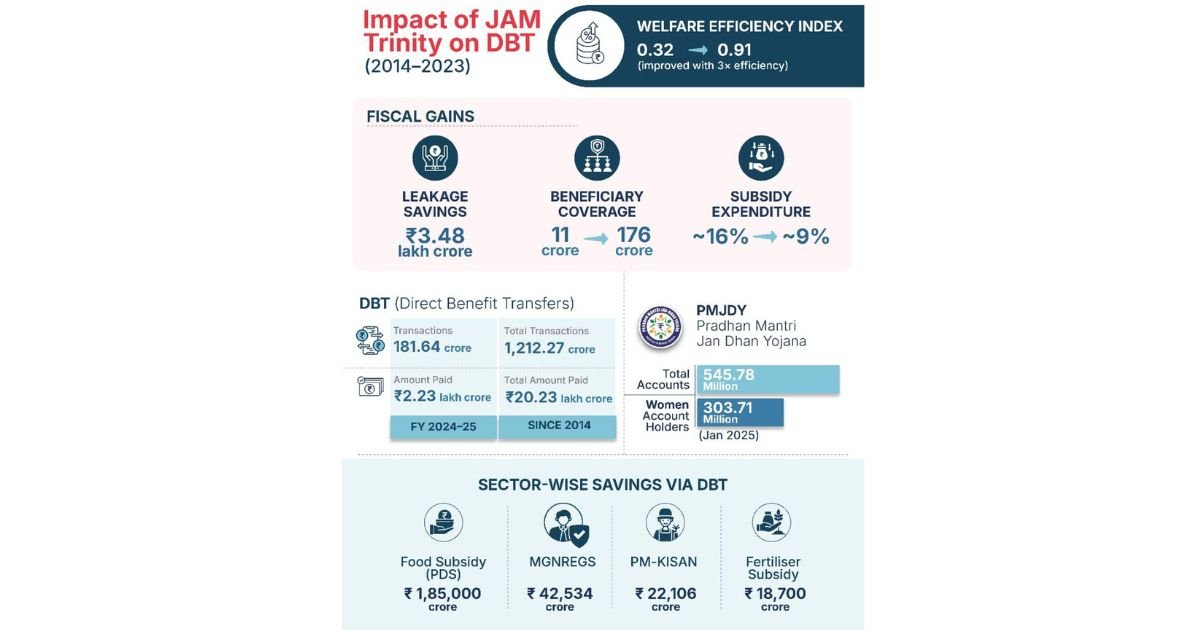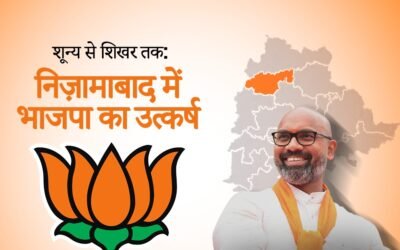The JAM Trinity — Jan Dhan, Aadhaar, and Mobile — has brought a revolutionary transformation in welfare delivery through Direct Benefit Transfer (DBT) under the leadership of Prime Minister Narendra Modi. Since its inception, DBT has saved ₹3.48 lakh crore by reducing leakages, significantly increasing transparency and efficiency in the system. Beneficiary coverage has expanded remarkably from just 11 crore individuals in 2014 to over 176 crore today, reflecting the scale of outreach and inclusion. Total DBT payments since 2014 have reached ₹20.23 lakh crore, with over 1,212 crore transactions processed. In the financial year 2024–25 alone, ₹2.23 lakh crore has been transferred through 181.64 crore transactions. A notable achievement is the empowerment of women, with more than 30 crore Jan Dhan accounts held by women, ensuring direct financial access to millions of households. The Welfare Efficiency Index, which stood at 0.32 in 2014, has now improved to 0.91 — reflecting a threefold increase in delivery effectiveness. Furthermore, overall subsidy expenditure has reduced from nearly 16 percent to just 9 percent, demonstrating the fiscal prudence brought by this reform. As of January 2025, the Pradhan Mantri Jan Dhan Yojana (PMJDY) has recorded 545.78 million total accounts, with 303.71 million belonging to women. The impact of DBT is clearly visible across key sectors. Food subsidy (PDS) savings stand at ₹1,85,000 crore, MGNREGS at ₹42,534 crore, PM-KISAN at ₹22,106 crore, and fertilizer subsidies have saved ₹18,700 crore. This transformation is not just a policy success—it is a field-level change that has improved lives, empowered citizens, and established India as a global leader in digital public infrastructure.




